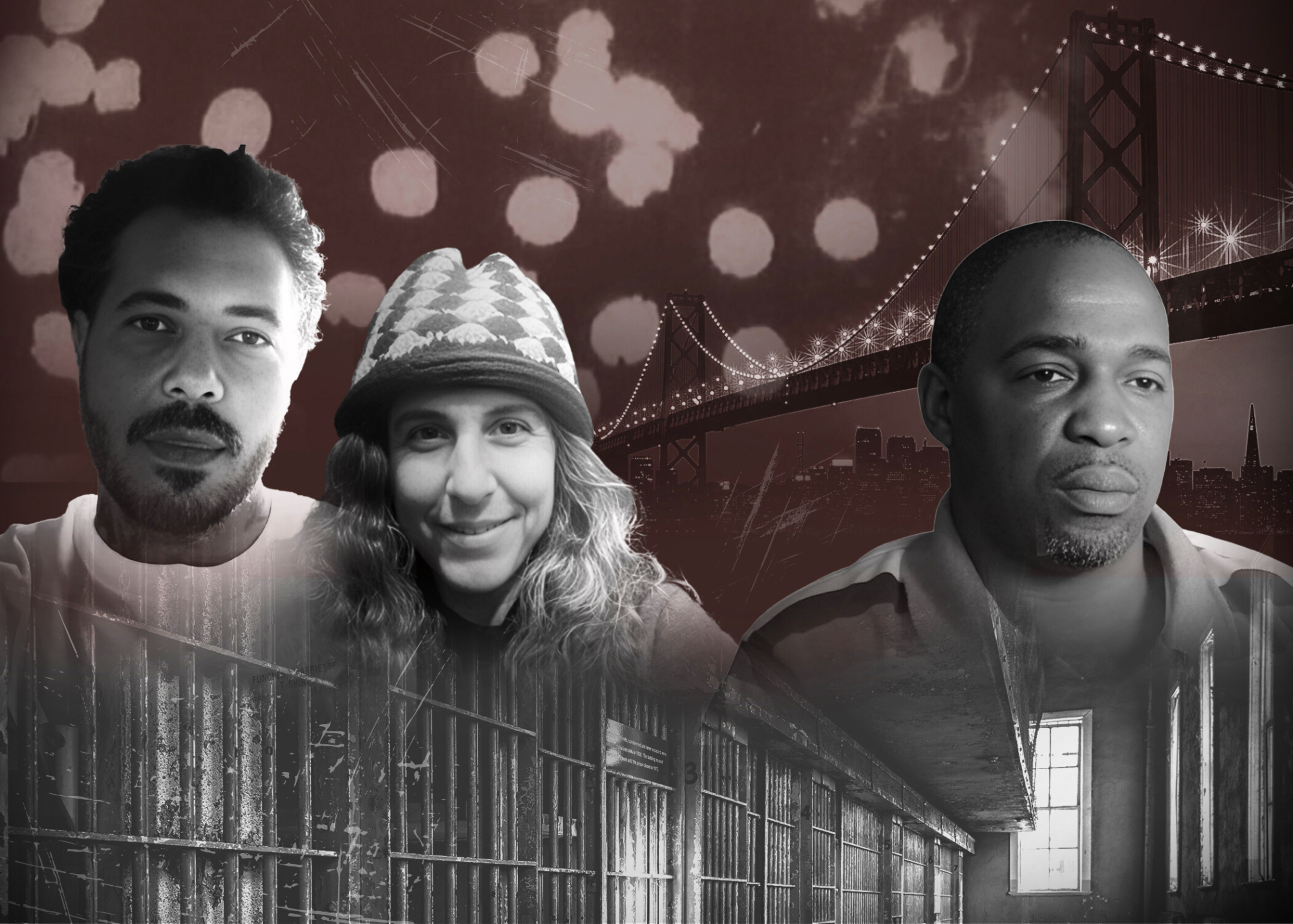In 1991, Maurice Caldwell, then 23, was convicted of murder for a San Francisco drug deal gone bad. Nearly two decades later, a young lawyer at the Northern California Innocence Project, Paige Kaneb, helped win his release from prison. The victory hinged largely on declarations from Marritte Funches, Caldwell’s friend, who took blame for the killing and said Caldwell was not his accomplice. After Caldwell won his freedom, he went on to win an $8 million settlement from the city for his two decades behind bars — the second largest payout the city has ever made in such a case.
Now, though, Funches says he lied about Caldwell’s innocence. What’s more, he says Kaneb has known about his lie but continues to represent the case publicly as an example of the truth triumphing in the end.
“In 1990, myself and Maurice Caldwell shot two people,” Funches, 53, told The Standard from his prison cell in Colorado, where he is serving life for an unrelated murder.
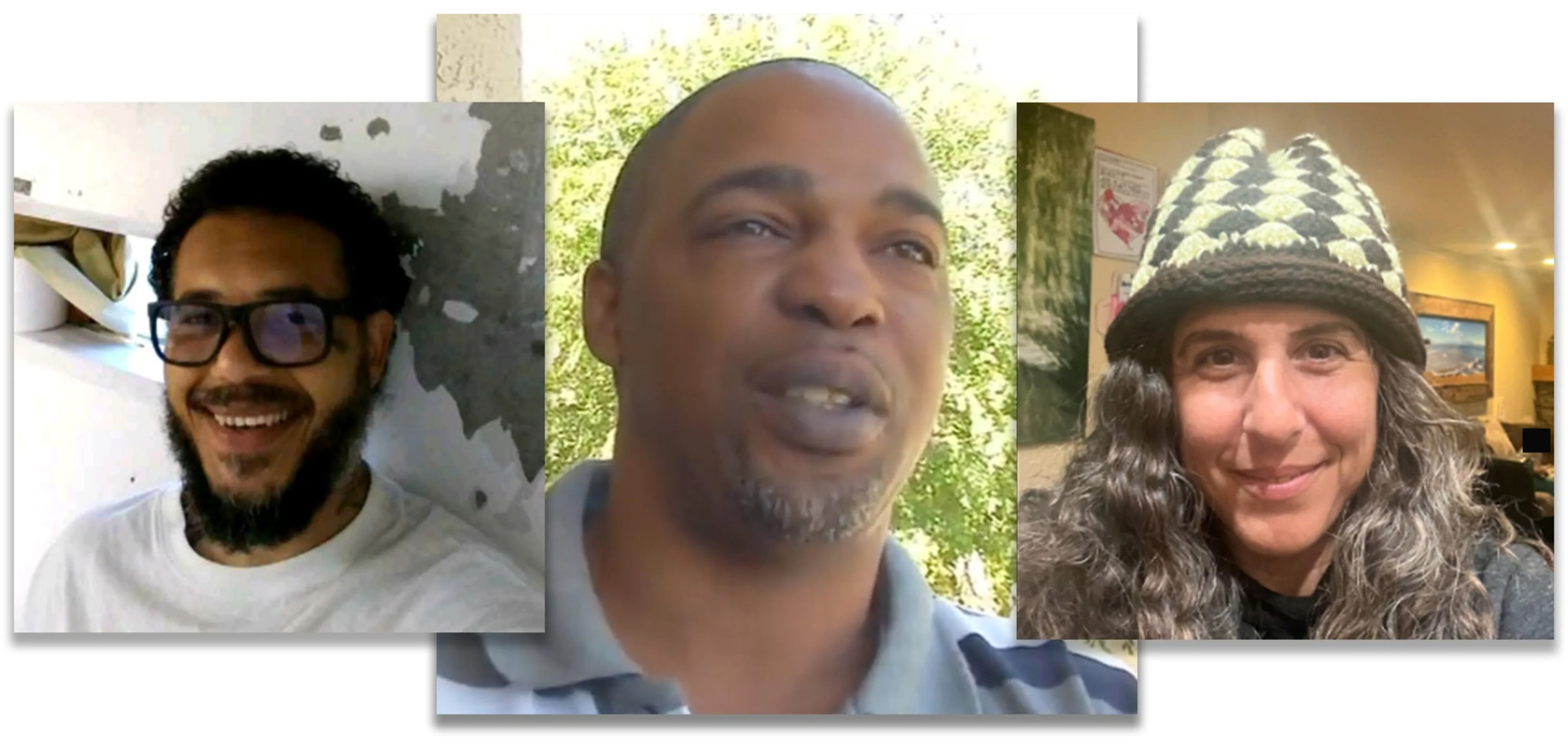
In a series of extensive communications with The Standard from prison, Funches revealed an off-and-on romantic relationship with Kaneb, including during the period in which she represented Caldwell in court and secured his freedom. Funches solicited and accepted favors from Kaneb. Funches says he recently filed a complaint with the authorities and handed over the phone on which he communicated with Caldwell about the case and the promises he made, and with Kaneb about their relationship and the case.
The Standard has viewed text messages and court transcripts, and listened to taped phone calls that corroborate many aspects of Funches’ relationship with Kaneb and the aid he claims Caldwell promised him.
The disclosures add up to a complicated story of a murder, a friendship gone bad, a forbidden love, and a series of betrayals. They also raise troubling questions about the much-lauded Innocence Project and the lengths to which one of its top lawyers was willing to go to free a man convicted of murder.
(The Northern California Innocence Project, or NCIP, is independent from the original Innocence Project founded in New York City. All references to Innocence Project in this story refer to the NCIP.)
Neither Kaneb nor Caldwell responded to repeated requests for comment.
The Innocence Project’s Executive Director, Todd Fries, defended his organization’s ethical standards and its work on behalf of Caldwell. “The NCIP stands by our legal representation of Maurice Caldwell, whose exoneration in 2011 was based on widely corroborated facts and testimony, and believes these claims have no bearing on the rightful exoneration of this innocent man,” he said.
Fries added that the allegations against Kaneb have been referred to Santa Clara University, which houses the Innocence Project’s Northern California chapter, for investigation.
The San Francisco city attorney’s office informed The Standard that it is investigating the allegations in relation to the civil case that Caldwell filed.
The killing
On June 30, 1990, Judy Acosta was shot and killed by two men in a drug deal gone wrong in San Francisco’s Alemany projects, an isolated public housing development known as “The Hole” on the southern edge of the city.
Soon after the slaying, San Francisco Police Department’s homicide detail zeroed in on Maurice Caldwell, aka “Twan,” a local drug dealer. Their prime suspect, they surmised, had fired the shotgun at Acosta.
While they eventually gathered enough evidence to arrest and charge Caldwell in September 1990, police did not go after 20-year-old Funches. At the time, Funches and Caldwell were close friends who had met as children in the Alemany projects. Caldwell became a mentor and boss to Funches, who had been raised in poverty by his mother, a sex worker.
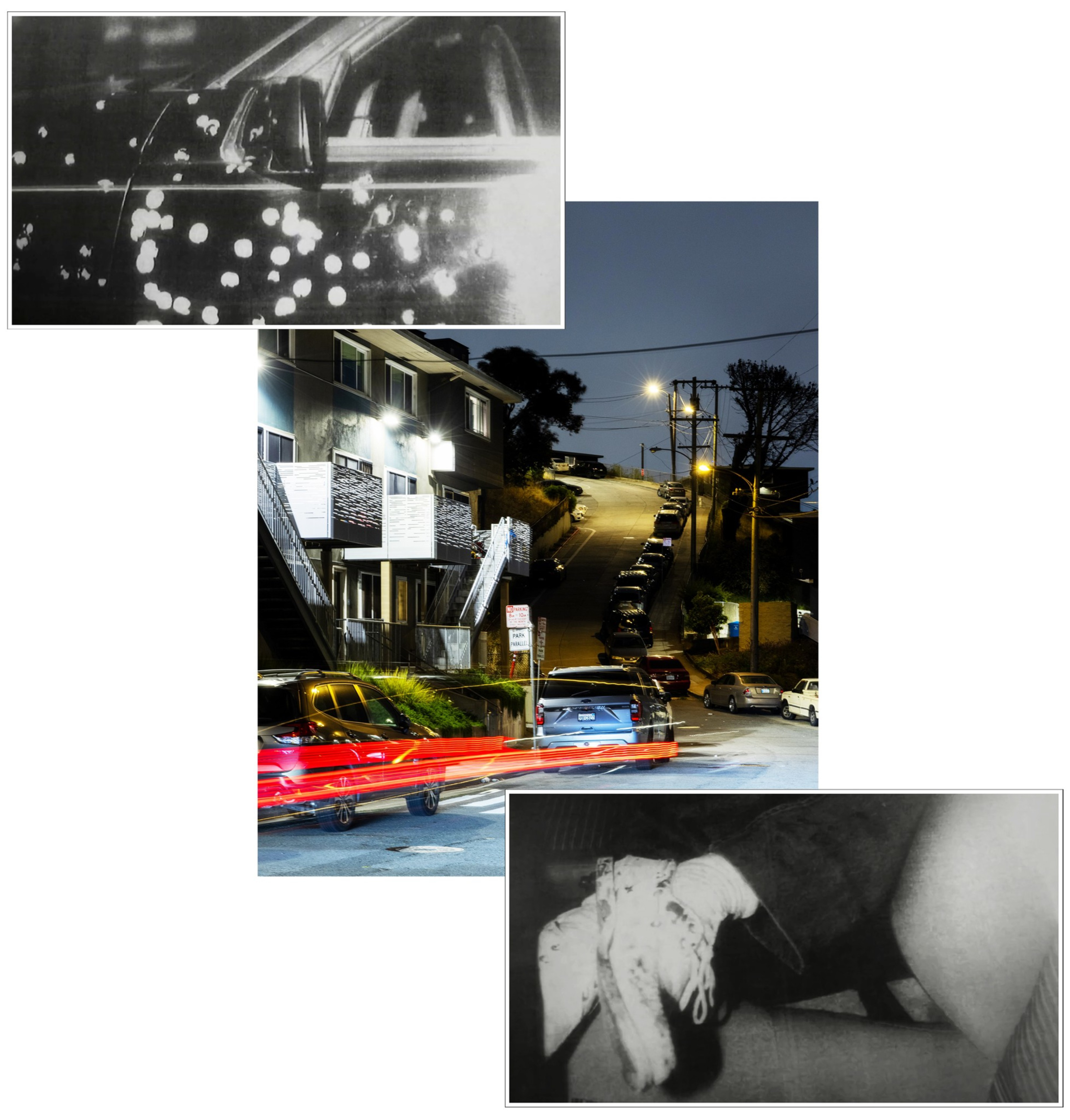
“You was my big homey. You was putting me in the game. You was the kingpin of the hood,” Funches said to Caldwell years later. “You was my only family, bro. I didn’t have anybody else.”
At first, Funches said, he helped pressure the key witness against Caldwell to stop working with the police.
But Caldwell soon lost faith in Funches and began threatening to pin the killing on him, Funches said.
Funches fled to Nevada. In March 1991, he shot a Reno cab driver in the back of the head during a robbery. Funches was convicted and sentenced to life in prison without the possibility of parole.
That same month, a California jury found Caldwell guilty of second-degree murder for the killing of Acosta. The case swung on the testimony of a woman named Mary Cobb, who said she was in her home when she saw Caldwell shoot Acosta with a shotgun.
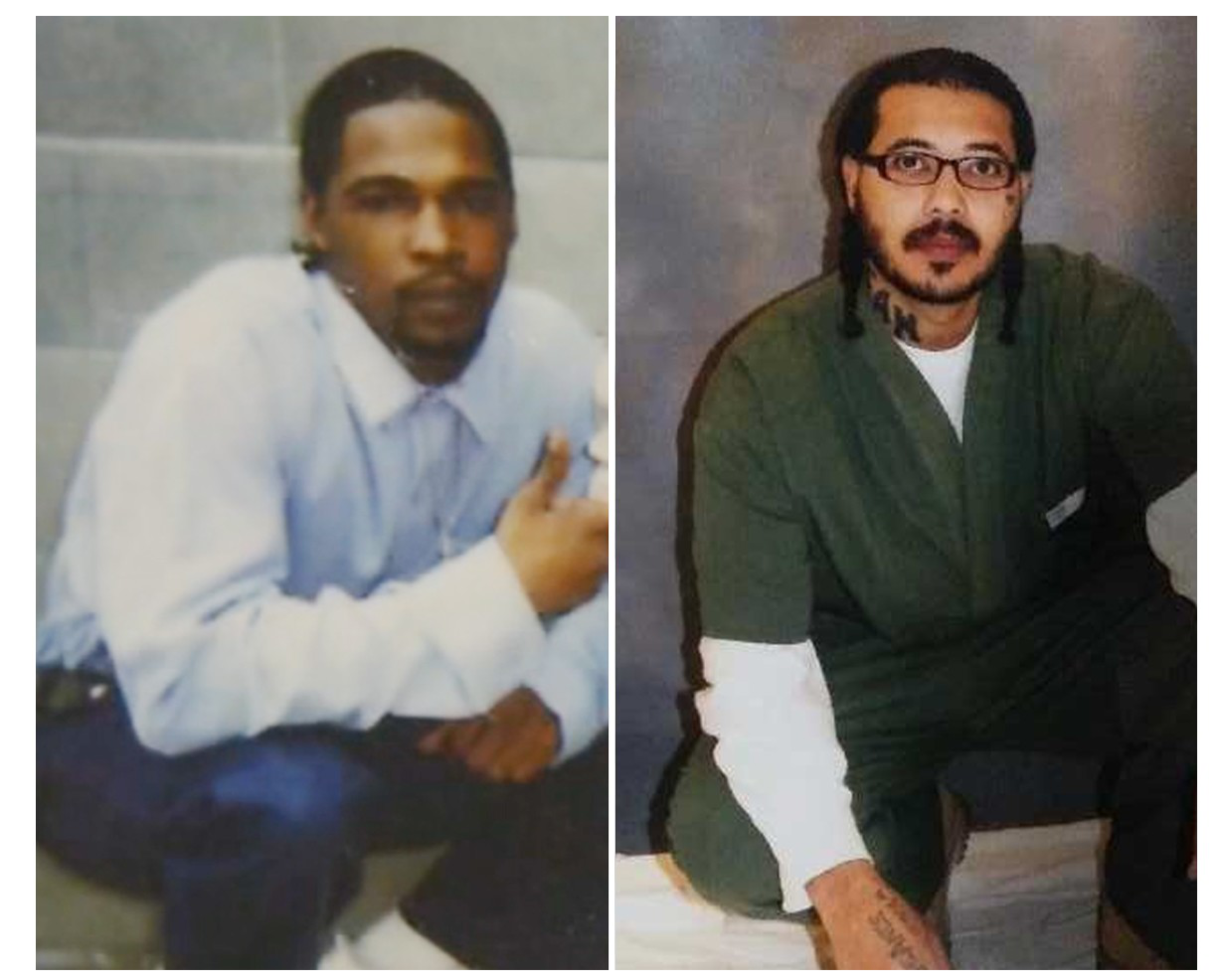
Separated by 600 miles of high desert, the two childhood friends found themselves in two different prisons for two different murders, where they would both stay for the next seventeen years, stewing in mutual animosity.
Caldwell sent repeated communications asking for Funches to admit to the San Francisco killing. Funches met his entreaties with silence.
The romance
Nearly two decades later, the Santa Clara University-based Innocence Project took on Caldwell’s case. The organization works to free the wrongly convicted, and has a robust track record of exposing miscarriages of justice and the ills of the criminal justice system.
In 2007, fresh out of law school, Kaneb began working for the Innocence Project, where she was assigned to Caldwell’s case. The pair began their love affair in phone calls and letters, some of which would include sexually explicit language from Funches.
She first met Funches in person after traveling to Nevada in 2010, where he was then imprisoned, to secure his cooperation in her fight for Caldwell’s release. Years later, Kaneb would reflect on the meeting in a text to Funches:
“I still remember in that first visit you were looking at Linda [Starr, NCIP Founder who was also at the prison] the whole time and I took my hair out,” Kaneb would later text Funches. “I wanted you to look at me— I’ve never admitted that before…I remember when she left for a few minutes. It was like my chest would explode. And we began talking…. ❤.”
As their relationship blossomed, Kaneb began helping Funches in ways that legal experts say may have been inappropriate given his status as a witness in Caldwell’s case. According to court filings in Caldwell’s civil rights lawsuit, city attorneys stated that Kaneb gave Funches what was potential legal and medical aid and passed along money to his daughter despite also crafting his declaration in the case to free Caldwell.
Kaneb and the Northern California Innocence Project have said that Funches asked for but was not given legal aid, court records show. Kaneb acknowledged providing assistance in a 2016 deposition, but said what she did for Funches did not cross ethical lines.
While there is no specific rule barring a lawyer from having a relationship with a witness, if a court knew about Kaneb’s relationship with Funches, any testimony would almost certainly be discredited, said legal ethicist Richard Zitrin, who teaches at UC San Francisco Law.
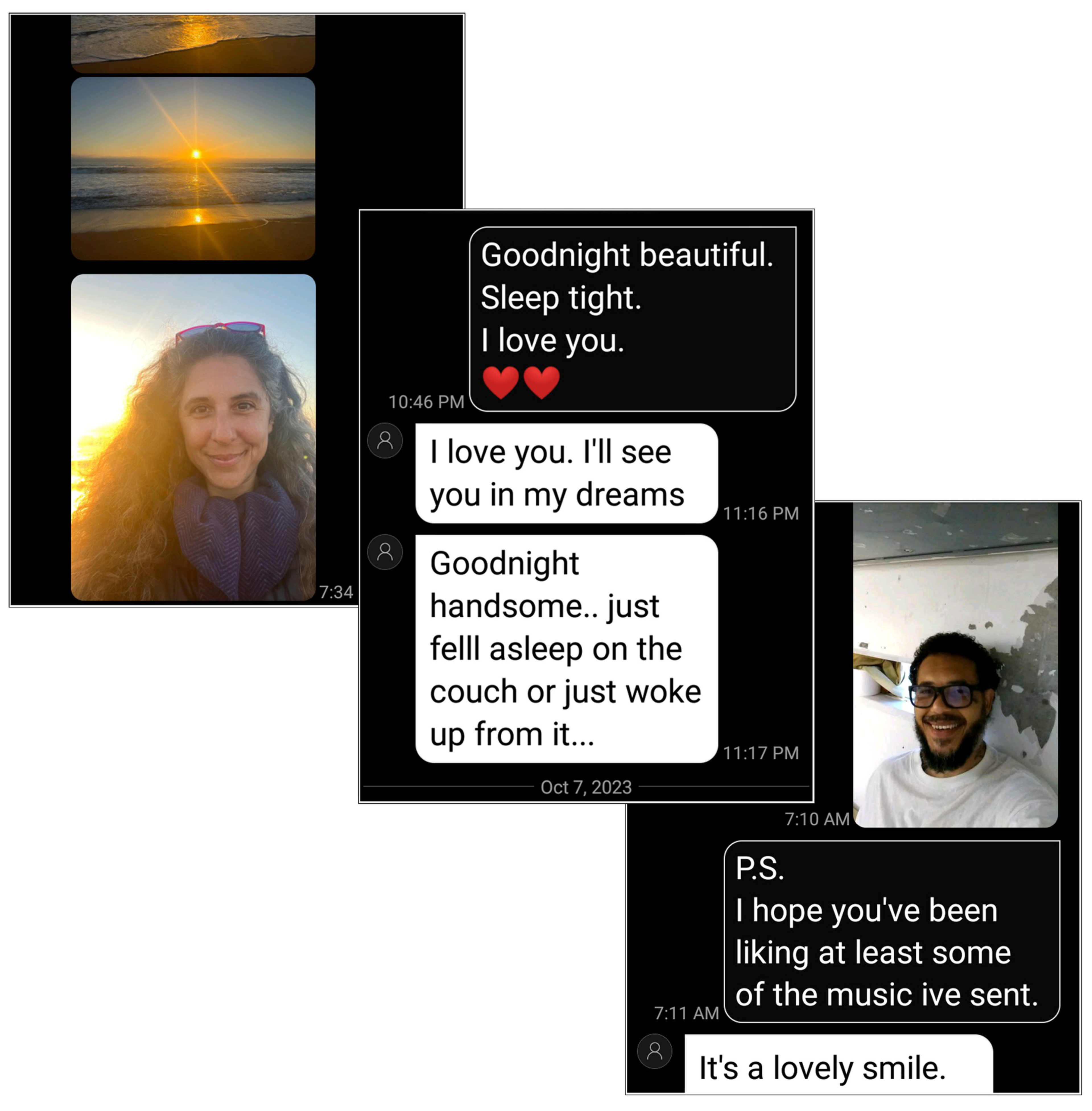
Broken promises
As the 2010 hearing that would overturn Caldwell’s conviction drew near, Funches not only helped Kaneb build Caldwell’s case but also helped her find and convince several additional witnesses to come forward. His only condition was that the witnesses could choose to remain confidential. Funches claims Kaneb soon broke that promise. After Kaneb revealed the witnesses’ names publicly, Funches said he broke off their romantic affair.
Despite the rupture, Kaneb continued to work on Caldwell’s case. Kaneb and the Innocence Project interviewed numerous witnesses, including Funches, and put their stories to paper.
In March 2010, a San Francisco Superior Court judge granted Caldwell a new trial, ruling he had had ineffective counsel in his first one. The judge, informed by Kaneb’s filings, wrote that Caldwell’s attorney had failed his client by neglecting to hire an investigator or do a thorough investigation, which should have included interviewing Funches and other witnesses the Innocence Project located with Funches’ help.
Rather than retry Caldwell, the District Attorney dismissed the case. As Kaneb and others waited, a smiling Caldwell walked out of San Francisco County jail on March 28, 2011, a free man. For a time, Kaneb even put Caldwell up at her apartment.
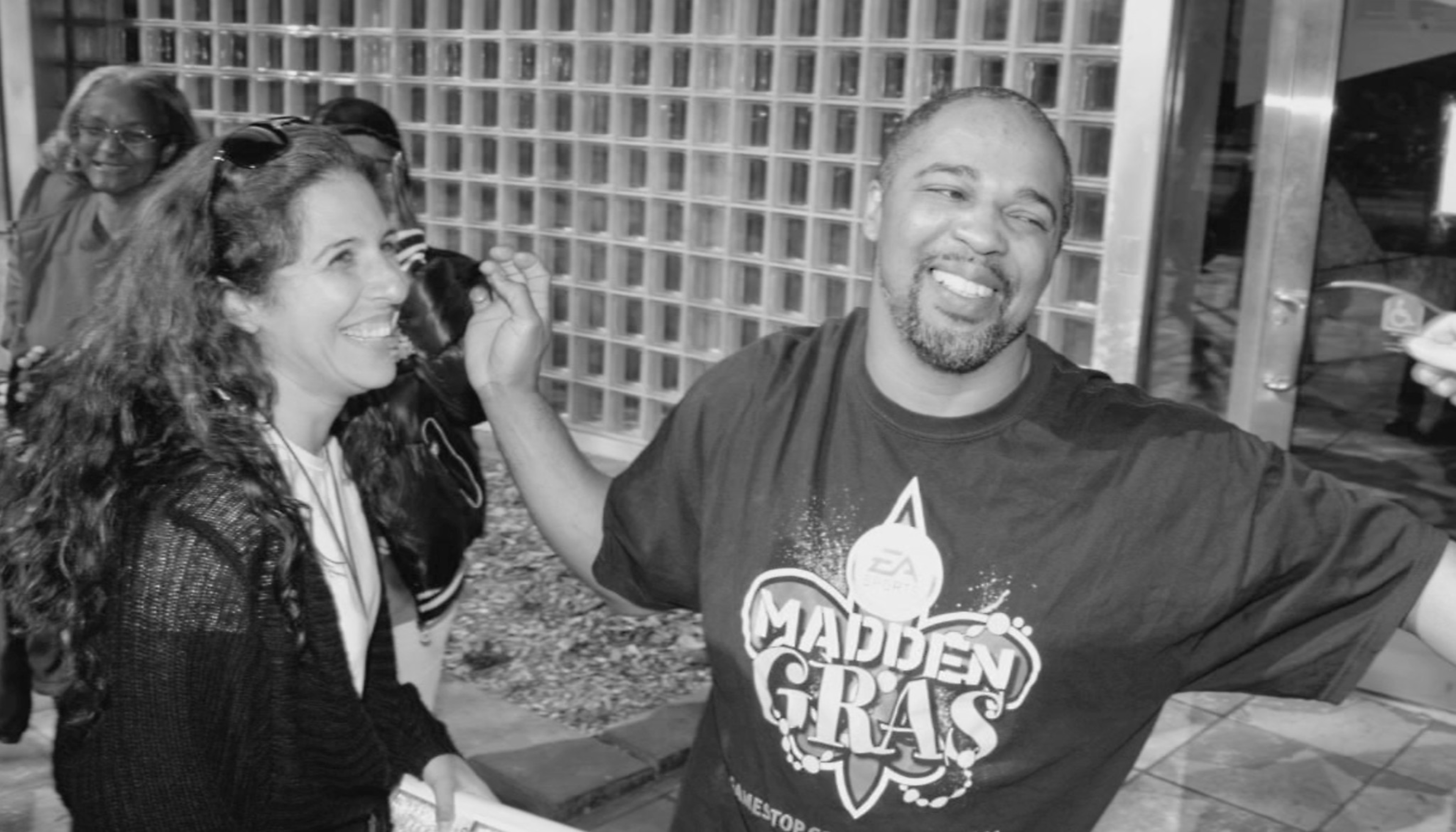
Caldwell quickly filed a civil suit against San Francisco on the grounds that, with his conviction invalidated, his long imprisonment represented a civil rights violation. As city lawyers sought to defend the D.A.’s handling of the case, they uncovered inconsistencies in the stories of witnesses collected by the Innocence Project. After reinterviewing several witnesses, the city attorneys accused Kaneb in a filing of “manipulating the facts.”
In 2018, after a series of court victories, Caldwell lost a separate bid to have a court declare him factually innocent. Despite that ruling and the inconsistencies flagged by the city attorneys, in 2021 San Francisco’s Board of Supervisors approved an $8 million settlement.
The rekindling
Kaneb held her cell phone as she narrated a video for Funches of what she saw along the path from her Half Moon Bay home to the beach. The majestic view of the Pacific Ocean and the sound of the waves on the sand might give him some solace, she hoped.
Three states away in his Colorado prison cell, he watched the video—among dozens she’d sent him in a year—as he lay on his top bunk.
By early 2023 Funches had reconnected with Kaneb, who was in the process of breaking up with her boyfriend. That contact reignited their connection, anchored again by numerous videos, photos and phone calls.
The two spoke or texted almost every day for a year, exchanging nearly 9,000 messages. They sent videos and sexts, gifts, and even introduced each other to their daughters. Kaneb sent Funches money, books and a knitted pair of stuffed animals. He, in turn, knitted her a hat, which she displayed in one of their exchanges. She sent him an image of her in a sarong, saying she had nothing on underneath. He replied that his “imagination was going crazy.”
There were apologies for past wrongs and fresh declarations of love. “I’m sorry things fell apart and that it had such a negative effect on you. I never wanted that,” she wrote in July 2023. That same month he wrote: “I love you. I always have. Never stopped. Always will….” he wrote. She responded: “I love you too. Always have, always will.”
Most consequentially, they argued about his claims about Caldwell’s guilt. In a December 2023 conversation with Kaneb, Funches said he told her that he lied about Caldwell’s innocence.
She pushed back, saying “I thought there was an innocent person. Do not fucking claim that you told me the truth. Because you did not.”
In response, Funches wrote, “You may not have wanted to hear me, and I’ll accept that from you.”
He then acknowledged he “didn’t flat out tell” her Caldwell was guilty, but he did say that “Maurice isn’t everything you think he is.”
By the end of this February, Funches had fallen out with Kaneb again. Their break, which played out in his increasingly accusatory correspondence, fueled Funches’ growing suspicion that she had manipulated him with romantic overtures to help a guilty man get out of prison.
“She pretended to take a personal interest in me. We began a romantic relationship,” he wrote to The Standard. “It was the art of seduction at its finest. All to get me to finally help Mr. Caldwell.”
Epilogue
Since Caldwell’s case was overturned in 2010, the Innocence Project has freed 25 more people and grown in reputation, size and funding. In numerous public events, Kaneb and Caldwell have appeared together to tout the organization’s work securing justice for the wrongfully accused.
At a 2021 Zoom event, Kaneb and Caldwell appeared together on video and retold the story of Caldwell’s case. Kaneb, now the Northern California Innocence Project’s Legal Director, managing its attorneys and caseload, has maintained publicly that her work in the exoneration of Caldwell was above board. She faced the camera with a broad smile framed by her thick head of dark, long hair. Caldwell peered through a pair of glasses, a salt-and-pepper goatee covering his chin.
“Maurice has always proclaimed his innocence,” Kaneb said of Caldwell. “It’s the most compelling case for innocence that I’ve ever seen.”
Editor’s note: Following publication of this article, attorneys for Caldwell contacted The Standard to address Funches’ claims. “The evidence of Mr. Caldwell’s innocence and the police misconduct that led to the wrongful conviction is overwhelming — so much so that he was awarded $8 million in damages for the wrongful conviction and false imprisonment, which is among the largest awards of its kind in the state of California,” the attorneys, Daniel P. Watkins and Hannah Menchel, wrote. “Mr. Funches first disclosed that Mr. Caldwell was not involved in [Judy] Acosta’s murder long before he ever met Ms. Kaneb or had any contact with her, and years before she even graduated from law school.” Caldwell’s attorneys also alleged that Funches recanted his claim of Caldwell’s innocence in an effort to extort money from Caldwell and Kaneb. Funches denies the allegation of extortion.
